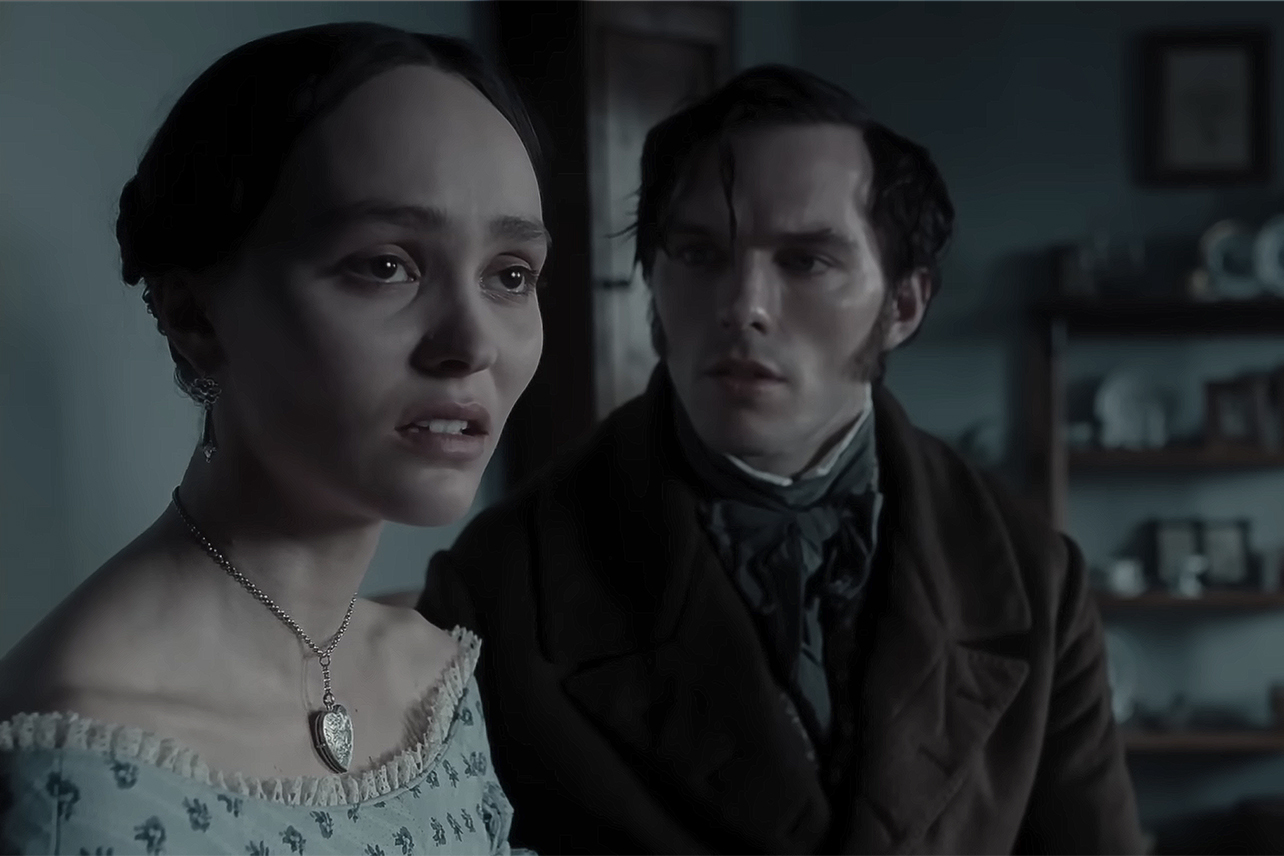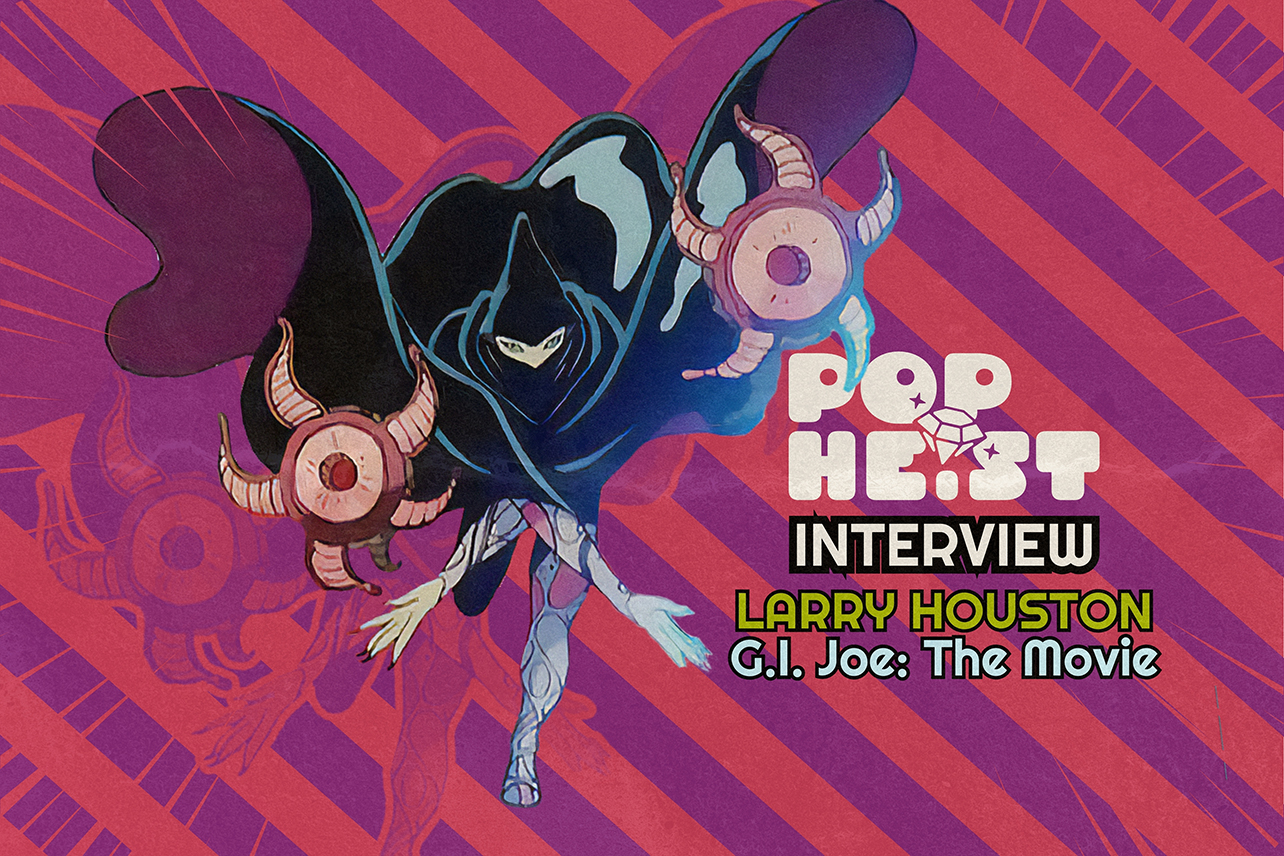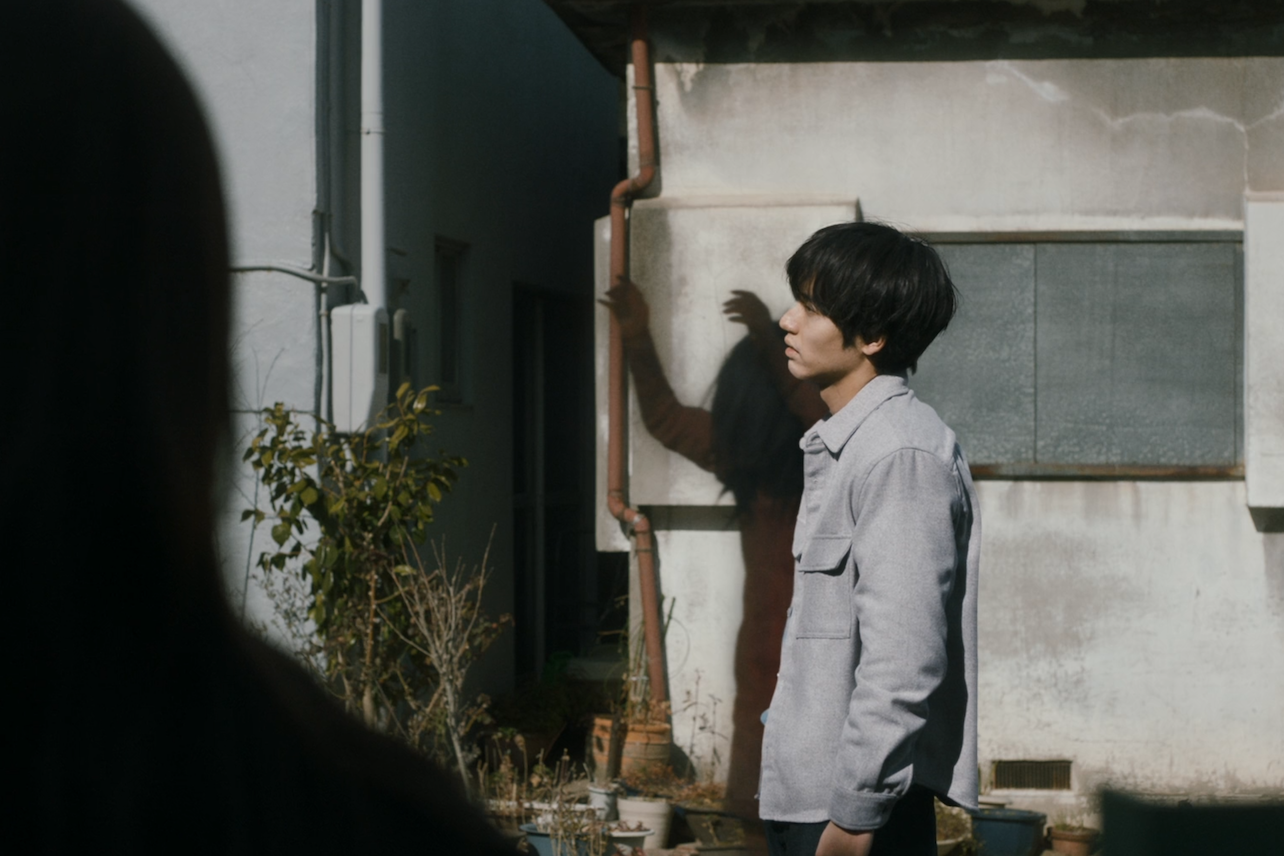Nosferatu
Writer: Robert Eggers
Director: Robert Eggers
Cast: Bill Skarsgård, Nicholas Hoult, Lily-Rose Depp, Aaron Taylor-Johnson, Emma Corrin, Willem Dafoe
What I Should Have Said Was Nothing
In 1922 Henrik Galeen was tasked with adapting Dracula to the screen. Upon completion of the script, fly-by-night production company Prana Films had him do a Ctrl+H on all the locations and character names — "Orlock" for Dracula, "Hutter" for Harker. All the better to appeal to German audiences and skirt copyright law. This was 25 years removed from the novel's publication and a mere ten years after Stoker's death; Dracula wouldn't enter the public domain until the 1960s. A Renfield by any other name — "Herr Knock" for instance — still smells as rank, and the Stoker family lawyers took notice. Prana Films never made another picture, and all copies of the film were eventually ordered destroyed.
But projectionists aren't so unlike a vampire's dedicated familiars, and director F.W. Murnau's silent Nosferatu: Eine Symphonie des Grauens survived in patchwork assembly cuts.
Though its pallid, verminous vision of the high-born vampire was displaced by the slicked-back grace of Bela Lugosi, it immortalized star Max Schreck, forever after, as Dracula's creeping shadow. It also originated the enduring trope that vampires could be outright obliterated by daylight. In 1979, Werner Herzog introduced waves of chittering plague rats with his own adaptation. And so the story grows and changes in the telling, as folklore tends to do.
The New One
A century on from the original, Robert Eggers has interlaced his own shadow puppets with Murnau's and Herzog's respective visions. In the most striking image of his new adaptation, Orlock reaches out a window overlooking Wisborg, the shadow of his outstretched hand extending up and out over the rooftops, carried ever higher by Robin Carolan's haunting orchestration. Nosferatu is the old world come to blanket the children of the Enlightenment in doubt.
This count is no shrinking violet, far more ferocious than the frankly anemic hobgoblins of yore. Max Schreck and Klaus Kinski occupied sleek, tailored silhouettes, retreating inward on themselves. Conversely, Bill Skarsgård's Orlock adorns himself in a mountain of furs, disguising a possum's roadkill physique and making himself appear much wider. He dissolves into the role, unrecognizable in voice and visage. That walleyed Pennywise gaze of It is fixed to a pointed glare. He growls from behind a push broom mustache as if dredging each word up from new depths. Here's your proper hot rodent ex-boyfriend, a glowering corpse projecting — insisting — virility.
The whole affair is lensed by Egger's longtime collaborator Jarin Blaschke to mimic the world as we see it by blue and silver moonlight or flickering yellow candle flame. Slow oscillating pans draw out space — atmosphere for days — with the full knowledge that things are going to be bad once the camera inevitably returns to its starting position. Orlock navigates these frames as no mortal can, fooling the eye like a Times Square hustler.
Sleepwalk with Me
The most important mutation Eggers offers up to the bloodline is in shifting the point of view to Lily-Rose Depp's Ellen Hutter (Mina Harker in the novel). It's a vital, thrumming, garment-rending performance. Ellen is a somnambulist, a sleepwalker prone to vivid dreams and wandering off balconies. Thus, when her doting estate-agent husband, Thomas (Nicholas Hoult), departs for Orlock's castle, he leaves her in the care of their friends, Friedrich and Anna Harding (Aaron Taylor-Johnson and Emma Corrin).
Taylor-Johnson furiously dog-paddles his way through the role, though it's weirdly befitting cynical Friedrich's own bluster and posturing. For anyone who's seen 1992's Bram Stoker's Dracula and Sadie Frost's operatic turn as Lucy, Corrin seems woefully underutilized as her steadfast, Good Vibes Only analogue, Anna. When they do get the chance to cook, it's quite affecting.
In a departure from previous iterations of the story, Ellen's relationship with Orlock precedes Thomas's journey to Transylvania. It precedes her courtship to Thomas. As a young girl, Ellen reached out for a "guardian angel," broadcasting herself on a frequency typically inaccessible to mortals. Orlock was listening and exploited this prayer, marking her as property. Years later she still suffers nightmares of his psychic assault, which manifest in full-body tremors. It colors the way she views other relationships, including her love life with Thomas. Now Orlock has arrived in Germany, and suddenly the material world feels much less consequential than the realms of her dreams.
My Girlfriend's Boyfriend
Ellen's love for Thomas is very real, but they both chafe against the suspicion that he could never offer what Orlock does, which is something like eternity. Thomas is a good man. Orlock is "appetite." Thomas offers a new house, a comfortable life. Rebuffed, Orlock speaks in the language of fairy tales, promising his return in three day's time. Houses are just another set of walls; in fairy tales, anything is possible.
After subsisting on a diet of ether and the scent of lilac, forced to wear a prescription corset to bed, Ellen finally lashes out against Friedrich's demand for order. It's she who enjoys the respect of the occultist Professor von Franz (Willem Dafoe), a cat guy who knows what he knows, and more importantly, knows the limits of that knowledge. Ellen ultimately brings about the vampire's demise. It's Thomas who inhabits the damsel role, flattered and patronized by the professor and led on a "false hunt" while Ellen does what has to be done.
The Old Man and the Pool
Eggers, in his studied adherence to folklore, often casts women as innately connected to the natural world, to ancient rites unbothered by man's efforts to tame and control. In daring to look the encroaching darkness head on, Ellen is the only one who can bring about the end of this corruption. No matter how much we grow to understand, there is so much more we can never comprehend. Where Thomas attempts to engage the enemy with torchlight, Ellen allows herself to sink into the shadow.
"We have not become so much enlightened as we have been blinded by the gaseous light of science," says von Franz. "The mystic philosophers of old dared to look into darkness. If we are to tame darkness, we must face it and know it as we know ourselves."
It is perhaps not as weird or experimental as Egger's past projects, playing things largely straight. Francis Ford Coppola's kid didn't loan him any antique lenses. But it is assured. The shadows at play on the wall show a deft understanding that the slightest tilt of the hand, a subtle shift in perspective, makes for an entirely different beast.






